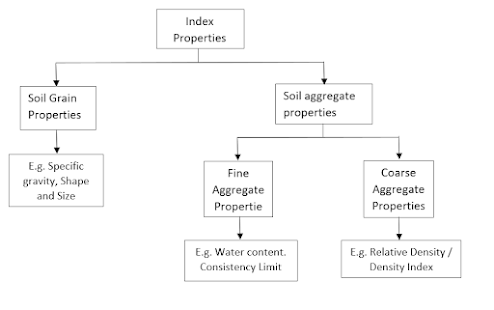soil index properties.
Discuss soil index properties.
Various classification system in practice place soils in different categories based on certain properties of soil. The tests carried out in order to classify a soil is termed as classification tests. The numerical results obtained from such tests are termed as Index properties of soil.
Index properties are the properties of soil that help in identification and classification of soil. These properties are generally determined in the laboratory. In situ density and relative density require undisturbed sample extraction while other quantities can be determined from disturbed soil sampling.
- Soil grain properties
- Soil aggregate properties
Soil grain properties
Soil grain properties are those properties which are dependent on the individual grains of the soil and are independent of the manner of soil formation, such as, mineral composition, specific gravity of soil solids, size and shape of the grains.
Soil aggregate properties
Soil aggregate properties are those properties which are dependent on the soil mass as a whole and , thus, represent the collective behavior of a soil. Soil aggregate properties are influenced by soil stress history, mode of soil formation and soil structure.
Following are the major properties of soils.
- Water Content
- Unit weight of Soil/ In-situ density
- Specific Gravity
- Consistency Limits
- Particle Size Distribution
- Sensitivity and activity of Clays

Comments
Post a Comment